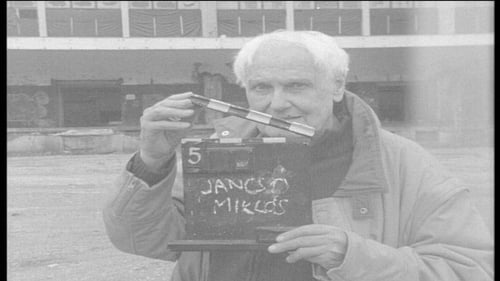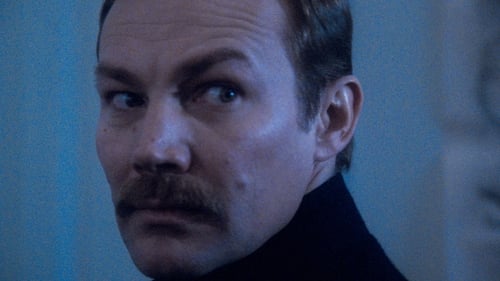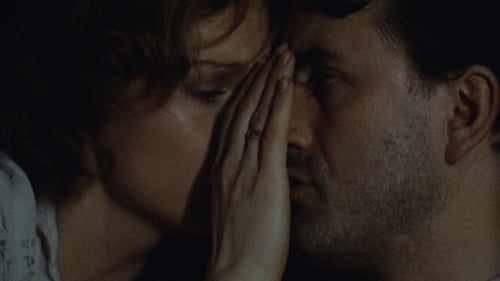Gyula Gazdag
Рождение : 1947-07-19, Budapest, Hungary

Self
Reconstructions of unrealized Hungarian films in cooperation with the greatest Hungarian film directors.

Director
Filmmaker Gyula Gazdag's fascinating documentary follows Hungarian poet, playwright and activist István Eörsi on a trip to the streets of New York to visit his friend and contemporary, the iconic beat poet Allen Ginsberg. Shot just two years before Ginsberg's death, the film follows the two friends as they share poetry and laughs, wandering the streets of the Lower East Manhattan, musing about the past and contemplating the future.

Screenplay
In a border town two sons of the local commander using stolen arms take hostages of eighteen girls in a dormitory, because they want to go West by plane.

Director
In a border town two sons of the local commander using stolen arms take hostages of eighteen girls in a dormitory, because they want to go West by plane.

Writer
Shot in B&W, Gyula Gazdag's film follows the surreal and often comic quests of young Andris, an orphan searching for a father who doesn't exist, and Orban, a government clerk who's had enough of oppressive bureaucracy.

Director
Shot in B&W, Gyula Gazdag's film follows the surreal and often comic quests of young Andris, an orphan searching for a father who doesn't exist, and Orban, a government clerk who's had enough of oppressive bureaucracy.

Oberleutnant Ehrlich
Это событие в 1913 году, накануне мировой войны всколыхнуло всю Европу. Начальник разведки австро-венгерской армии Альфред Редль, изобличенный в измене, покончил с собой. Что явилось причиной измены?

Director
A documentary which follows a coach party of former inmates on a trip to Auschwitz.

Writer
Via the New York Times: "The Hungarian director Gyula Gazdag has transposed the middle section of Balzac's "Lost Illusions" from Paris in the mid-19th century to the Budapest of 1968... it tells of Laszlo Sardi - Balzac's Lucien Chardon - and his efforts to launch his literary career amid the snobbery and sophistication of a big city."

Director
Via the New York Times: "The Hungarian director Gyula Gazdag has transposed the middle section of Balzac's "Lost Illusions" from Paris in the mid-19th century to the Budapest of 1968... it tells of Laszlo Sardi - Balzac's Lucien Chardon - and his efforts to launch his literary career amid the snobbery and sophistication of a big city."

Во время Второй мировой войны мужчина и женщина живут вместе как муж и жена, спасаясь от нацистов. После освобождения они должны смириться с новой ситуацией и решить, как быть дальше.

Director

Director
This grotesque, micro-realistic film is set in a small village at the end of the seventies. A TV-staff comes to the Petőfi Memorial House. They want to record the comic opera, The Postman of Longjumeau, by Charles Adam, a 19th century French composer.

Editor
The royal summary court sentences Sallai Imre and Fürst Sándor to death on charges of attempting to uproot the state and the social order. The film, the story of which takes place in 1932, enlarges the moment of delivering the death-sentence. Sallai, preparing for his death, envisions the people and the events that have been decisive for his life.

Editor
Mr. Dezső and Rezső are selecting the heroes for their new operetta. They represent different tastes and styles, and keep arguing about the casting of the four boys and four girls.

Screenplay
Mr. Dezső and Rezső are selecting the heroes for their new operetta. They represent different tastes and styles, and keep arguing about the casting of the four boys and four girls.

Director
Mr. Dezső and Rezső are selecting the heroes for their new operetta. They represent different tastes and styles, and keep arguing about the casting of the four boys and four girls.

Editor
Shot in 1972, this remarkable documentary was released ten years later and had its first Western film festival screenings last year. "Gyula Gazdag is an outstanding Hungarian talent who seems to specialize in getting into trouble. This film, which he made with Judit Ember, another alert and sensitive director, was banned for ten years. In it, a rural community is in financial trouble and an expert from Budapest is sent to advise and reorganize. He is successful but his manner angers the local committee. Despite their own management failure, they feel his arrogance should be the subject of a reprimand at least. The story is more than just true: so sure was the community of its cause that Gazdag and Ember were invited to film the actual debate, and the reality makes us protagonists in the case. It is a situation that could happen anywhere but seldom has such a subject been treated in so absorbing and striking a way.

Director
Shot in 1972, this remarkable documentary was released ten years later and had its first Western film festival screenings last year. "Gyula Gazdag is an outstanding Hungarian talent who seems to specialize in getting into trouble. This film, which he made with Judit Ember, another alert and sensitive director, was banned for ten years. In it, a rural community is in financial trouble and an expert from Budapest is sent to advise and reorganize. He is successful but his manner angers the local committee. Despite their own management failure, they feel his arrogance should be the subject of a reprimand at least. The story is more than just true: so sure was the community of its cause that Gazdag and Ember were invited to film the actual debate, and the reality makes us protagonists in the case. It is a situation that could happen anywhere but seldom has such a subject been treated in so absorbing and striking a way.

Director

Editor
The week-days of a youth-camp, playing democracy, are depicted in this documentarist satire. Due to faulty organisation, the Budapest high-school students get only working tools, but no work to do. The camp leadership tries to cover up facts and urges them to be initiated into "community life".

Screenplay
The week-days of a youth-camp, playing democracy, are depicted in this documentarist satire. Due to faulty organisation, the Budapest high-school students get only working tools, but no work to do. The camp leadership tries to cover up facts and urges them to be initiated into "community life".

Director
The week-days of a youth-camp, playing democracy, are depicted in this documentarist satire. Due to faulty organisation, the Budapest high-school students get only working tools, but no work to do. The camp leadership tries to cover up facts and urges them to be initiated into "community life".

Director
SELECTION documents a KISZ (Hungarian Young Communist League) chapter at an oil refinery that is interested in hiring a musical act as entertainment for young workers. The documentary shows the group discussing their criteria for the band, as well as their interviews with the individual bands. It is quickly apparent that the group isn’t interested in any sort of musical talent or the potential audiences’ interest. Rather, they are focused on ideological or moral issues that may be perceived as negative, such as groupies or outfits that are seen as too trendy. They settle on the musical group that is potentially the easiest to control, the youngest band. SELECTION works as a larger metaphor for what censorship was like in Socialist Hungary and was banned from being publicly screened until 1982.

Editor

Director

Director

Director
Right after the Red Army in 1944 was deliberating a little village, Veszto in eastern Hungary, the locals formed their "government", excommunicated the goods remaining in the village and distributed them among the poor. The social experiment only lasted two months, but this episode later became infamous in the communist press of Hungary and was referred to as 'Republic of Veszto'. 35 years later, in 1979, the actors and the witnesses, the representatives of the communist administration back then and the poors of the village get together in a little pub in Veszto and try to resuscitate and evaluate those old days. The memories clash one another.





















